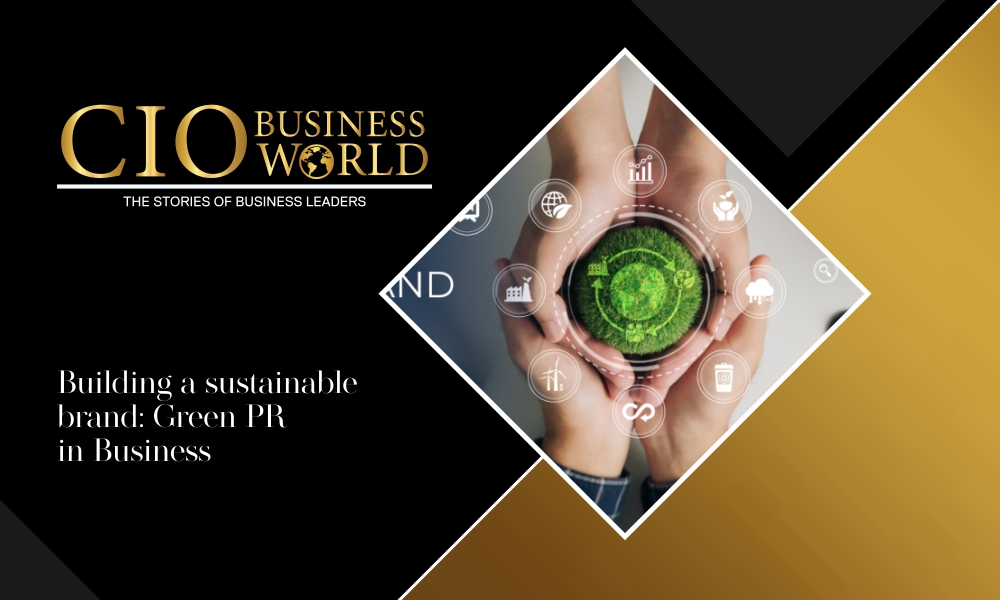The global climate crisis continues to be a high priority in every nation. For this reason, environmental initiatives and solutions in any sector are being prioritized. Concurrently, in public relations (PR), the term “Green PR” is gradually becoming popular and drawing interest from the press, PR experts, and businesses. Green PR highlights and concentrates on sustainability efforts that a company is striving to implement. This article will provide a more specific introduction to Green PR and outline how businesses can apply Green PR to become a sustainable brand.
Definition and importance of Green PR
Green PR is a subset of the public relations field. This term originates from the “green movement”, a worldwide social movement that aims to preserve the environment and reduce negative human impacts on the environment, such as climate change and environmental pollution. Typically, businesses implement Green PR to demonstrate their social responsibility by undertaking ecological protection initiatives, helping the company improve its reputation and raise brand awareness.
In Vietnam, the economic transition towards greening has become more evident through the specific rules set by the government to concretize the overall sustainable development policy and sustainable consumption in particular. However, most businesses in Vietnam are small and medium-sized enterprises (SMEs), and these enterprises still need to work on resource constraints as more sustainable business models. As a result, most SMEs in Vietnam are still in the stage of considering and have yet to take the initial step towards implementing sustainable development activities and green growth. Instead, most forward-thinking companies devoted to green development and production are export-focused, publicly traded, and FDI firms.
For several reasons, it is possible to convince a business to prioritize implementing Green PR initiatives. Nonetheless, the primary reasons are as follows:
- Increasing brand recognition: Businesses can make a positive impression on their clients by implementing environmental protection initiatives. 62% of Vietnamese consumers base their decisions about what to buy and how to use products and services on a business’s commitment to environmental responsibility.
- Meeting consumer expectations: Vietnamese consumers are becoming more concerned about “green” and “clean” factors when up to 86% are willing to pay extra for goods and services from companies with a positive social and environmental impact. The public is becoming more sensitive and attentive to environmental issues. Consequently, by prioritizing Green PR initiatives, businesses can meet the needs and expectations of their customers regarding their products and services.
- Strict policies and regulations for environmental protection: Globally, governments are pressing companies to assume greater accountability for their supply chains and business operations. In addition, the Vietnamese government has also approved strategies and plans to establish goals such as cutting greenhouse gas emissions, encouraging clean and renewable energy, greening production, and encouraging sustainable lifestyles.
How Should Vietnamese Businesses Implement Green Pr To Become A Sustainable Brand?
When embarking on environmental initiatives, businesses must avoid “greenwashing” – a term denoting companies attempting to portray a positive image regarding ecological protection without a genuine commitment to executing these initiatives. Therefore, it may be deemed an instance of “greenwashing” if environmental protection campaigns are purely commercial and do not accurately represent reality.
Instead, businesses should present initiatives and commitments that hold genuine significance and take concrete actions towards the environment. The Vietnamese cosmetics brand Cocoon is an eloquent example of this case. Protecting the environment and ecosystems has been a priority for Cocoon since its founding. This plant-based cosmetics company regularly starts meaningful projects and campaigns to inspire people to protect ecosystems and the environment. A few examples are using fabric bags instead of plastic ones, urging consumers to plant succulents in their old bottles, and providing product exchanges for empty bottle returns. Additionally, Cocoon has been certified as cruelty-free by PETA, an animal rights organization, and has been endorsed by Leaping Bunny, a commitment program against animal testing.
The Future Of Green Pr In Vietnam
In the face of increasing environmental and societal issues, establishing a responsible and sustainable brand image become more crucial than ever. Green PR has the potential to grow in significance and popularity in public relations and communications, both globally and in Vietnam. The statistics indicate that Vietnamese customers highly value environmental conservation efforts made by businesses.
To sum up, Green PR is not only a passing trend but also a sustainable and significant direction for the future. Companies that successfully use Green PR improve their brand recognition, protect the environment, and generate long-term economic benefits.
This article is written by Eloise Nguyen at EloQ Communications. Eloise is a PR and Communications Executive at EloQ and is responsible for localizing and creating contents for clients. EloQ Communications is a leading PR and IMC agency based in Vietnam and handling projects in Vietnam and throughout the ASEAN region.









